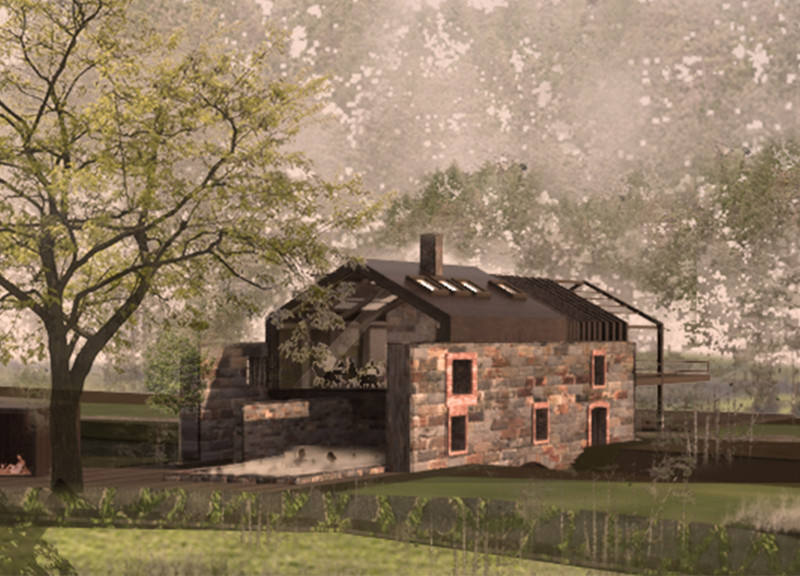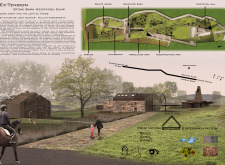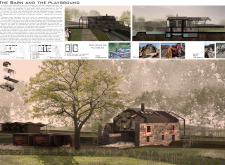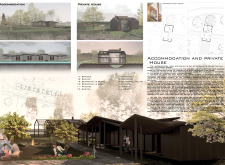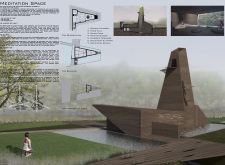5 key facts about this project
### Project Overview
Ex-Tension Stone Barn Meditation Camp is located in a tranquil setting designed to serve as a holistic retreat center. The project aims to facilitate meditation, relaxation, and environmental engagement. The design philosophy highlights a connection between natural elements and the user experience, reinforcing the idea that nature can impart valuable lessons.
### Spatial Strategy and User Experience
The planning of the camp emphasizes a balanced relationship between natural and constructed environments. Key facilities include a meditation hall, renovated barn, accommodation lodges, and recreational areas, all oriented to foster well-being. The architecture is purposefully designed to enhance mindfulness and create an experiential journey through various spaces.
The meditation hall functions as the core space for gatherings, utilizing modern yet subdued materials to harmonize with the landscape. The renovated barn maintains its historical attributes while accommodating multifunctional needs, creating a welcoming atmosphere. Accommodation units designed for privacy feature amenities like private terraces, ensuring comfort and a connection to the outdoors. Walkways interlink different zones, guiding users through areas of reflection, experimentation, and recreation.
### Material Selection and Environmental Integration
A thoughtful selection of materials plays a crucial role in the project, fostering a connection to the surrounding environment. Local stone is employed in the barn restoration for its timeless character, while wood is prominently used throughout the meditation hall and accommodations, adding warmth. Glass elements allow natural light to enhance the interiors, bridging the gap between indoor and outdoor spaces. Steel framing supports modern structural needs while complementing rustic features.
Environmental integration is central to the design approach, incorporating water features and greenery to bolster biodiversity. The restoration of existing structures aligns with sustainable practices, effectively reducing the carbon footprint. This holistic strategy promotes conservation and respect for the natural landscape.


